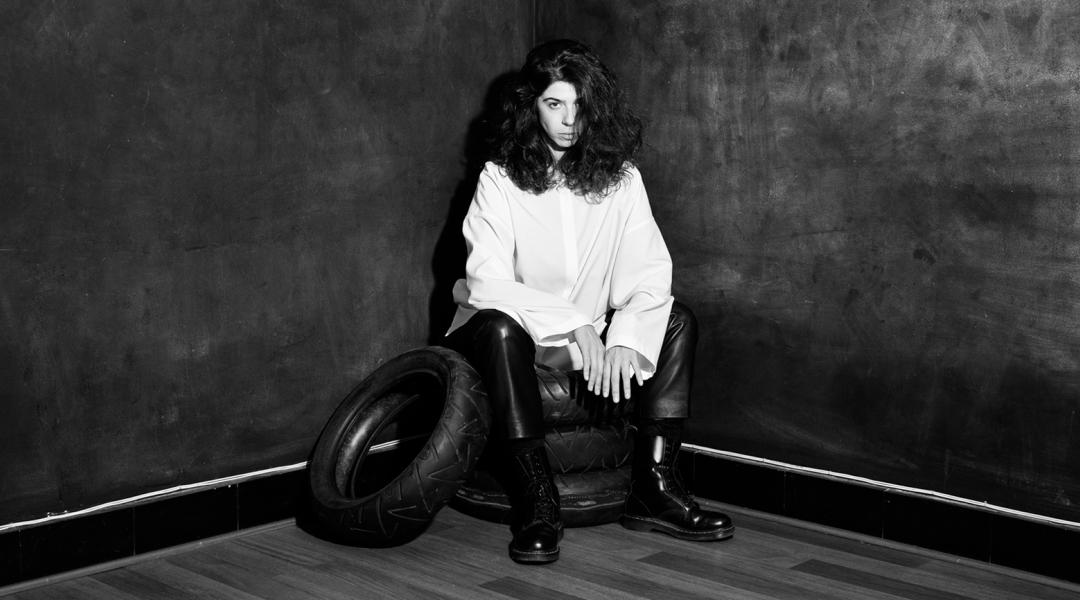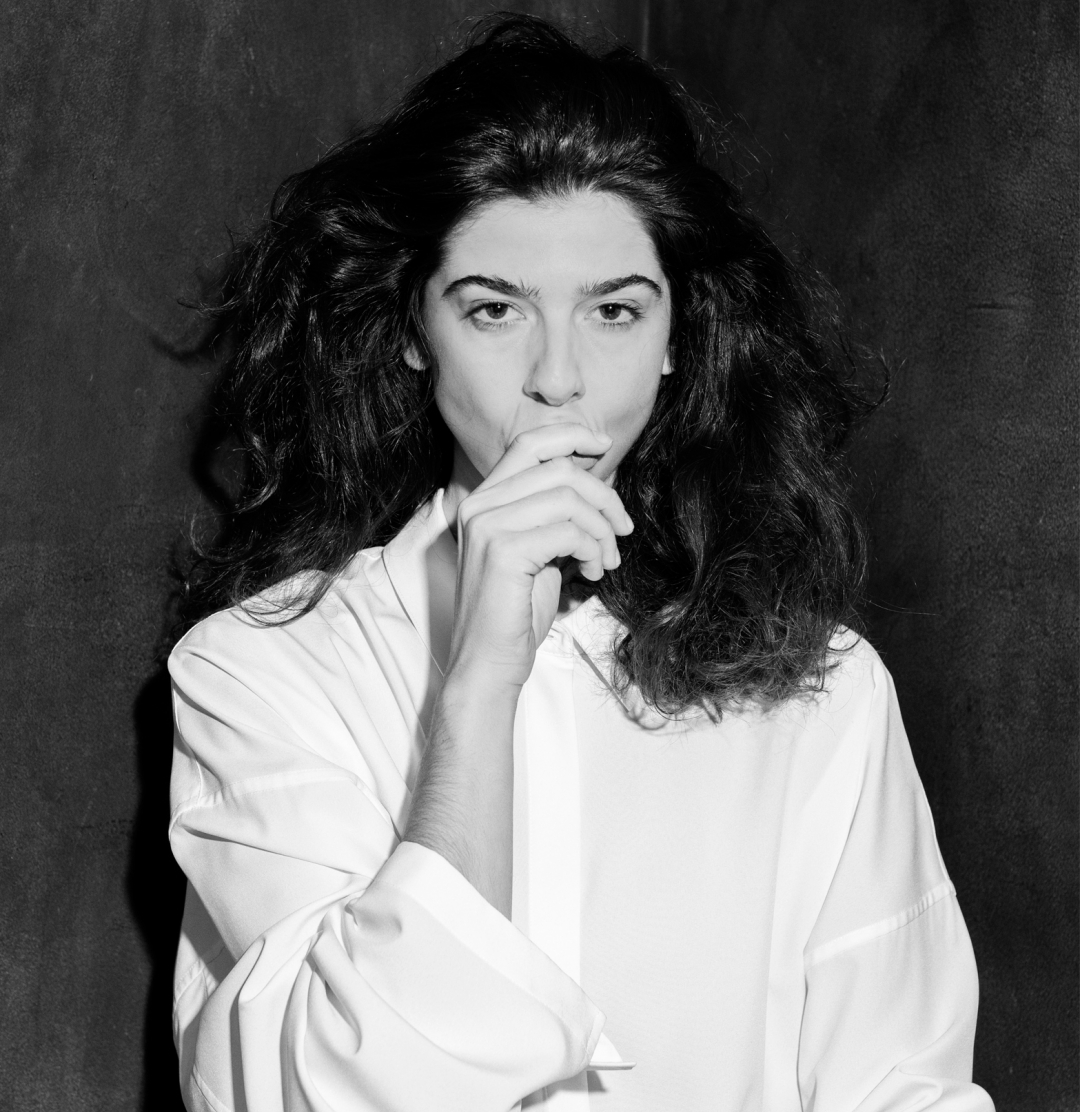Julia de Castro
The Life and Death of De la Puríssima

After ten years on the stage, De la Puríssima is saying goodbye. Led by Julia de Castro, voice and soul of this quartet that dared to merge cuplé with jazz, they will say goodbye forever to their fans in a memorable performance at Festival de Otoño. Amen.
De la Puríssima is saying goodbye. After ten years on the stage, the multi-faceted Julia de Castro (Ávila, 1984), the band’s frontwoman, has decided to put an end to the project that turned her into a necessary artist. “De la Puríssima has become exhausted as a means of expression. Both Miguel Rodrigáñez —composer and double bassist— and I were aware this was a project with an expiration date and were clear we didn't want it to die away. There was a meaning to it and an objective—the transition from youth to maturity, from my 25 to my 35 years, a very stimulating period that has now ended. It was important for us to finish it off properly”, De Castro says to Talento a Bordo.
During that period, Rome and specially a performing arts scholarship the Royal Academy of Spain awarded her last year in the Italian capital were decisive. “My year in Rome had a lot to do with this turning point. I lived there with many artists, I was able to do some research and be economically independent. What happened was that I left Spain with a performing arts scholarship and returned as a writer, which has opened me up to other languages.” Her time at the Eternal City culminated with the publication by Ediciones La Fábrica of the book La Rhetorica delle Puttane (The Rhetoric of Whores), a feminine approach to prostitution.
In De la Puríssima’s last performance, Exhalación: vida y muerte de De la Puríssima at Teatros del Canal on 16 November as part of the Madrid Festival de Otoño, the four-piece formed by Julia de Castro, Miguel Rodrigáñez, drummer Gonzalo Maestre and pianist Jorge Vera will say goodbye to their audience. “The set will feature all the periods we’ve gone through, from our Italian phase to cuplé to our most recent one, which is darker and more electronic." Julia de Castro promises this last show will be full of surprises since besides musicians they have invited other artists and people who have been part of De la Puríssima in one way or another. "It will be an intense and bold show, both physically and musically”.

Julia de Castro, lead singer of De la Puríssima. © Kela Coto
Many people have collaborated with this band that was born as a transition project using music as the most direct and ritualistic means to tackle issues such as sex, bullfighting, folklore or religion. De la Puríssima have always mixed different disciplines in an ongoing search for a language that could delve deeper into Julia de Castro’s lyrics. Among their collaborators are director Eduardo Chapero-Jackson, who filmed their first music video, co-starring De Castro and actress Bárbara Lennie; playwright María Folguera, who collaborated on texts; Cuarteto Quiroga (National Music Award 2018), and the recently deceased Ceesepe, the illustrator of La Movida. “Many of them will be present on 16 November,” she says.
De la Puríssima are saying goodbye with a sold-out show thanks to all the fans that, over the past ten years, have discovered a band that began as a local project to silently achieve some international recognition, with shows in Mexico, Morocco, Germany, United Kingdom and China, among others.
“De la Puríssima has become exhausted as a means of expression. It was important for us to finish it off properly”
A historically eventful decade many believe they have chronicled with their music. Oblivious to marketing strategies and always faithful to their wishes and to their personal and economic reality, the band self-published one album, Virgen, in 2015. De la Puríssima had no manager, no record label and no booking agent. It was precisely that unusual freedom which allowed them to develop a genuine and recognizable expressiveness. The band has written dozens of unregistered songs and texts their fans surprisingly sing and recite along in their shows. “In general, I feel a lot of recognition,” Julia Castro says. “We’re an underground band, so I’m still surprised whenever someone recognizes me. I think De la Puríssima is seen as a small project, but one we’ve taken care of with devotion and work.” Indeed. They must have done something since, just to name an example, the book Miradas sobre el cuplé en España includes a chapter dedicated to them for their contribution to folklore.
Upcoming projects
Exhalación: vida y muerte de De la Puríssima also marks the end of a shared path and the beginning of a solo project that already has roots and a name: Arizona, a collaboration between Julia de Castro and Mexican producer Camilo Lara, whom she met in 2016. That day, they promised they would do something together, and so Julia travelled to Tucson to get into de studio. We will have the chance to hear what came out of there in their final show.
The next step for Julia de Castro is cinema. She has already had roles in several films, including Los Pelayo, by Eduard Cortés; Marco, by Felix Viscarret, and El complejo de dinero, by Juan Rodrigáñez. Her outstanding performance in Javier Giner’s Anatomía de un Criminal won her a Best Actress nomination at the Cortopilar Festival. “I want to give acting a try, I'm not afraid of what comes next," she says.
And when asked if this is really the end of the road for De la Puríssma or maybe a hiatus, Julia de Castro is crystal clear: “I’m very extreme, and when I make a decision, I make it for good, I never change my mind.” Understood. The only thing left to say then is, Farewell, De la Puríssima! You will be greatly missed.



